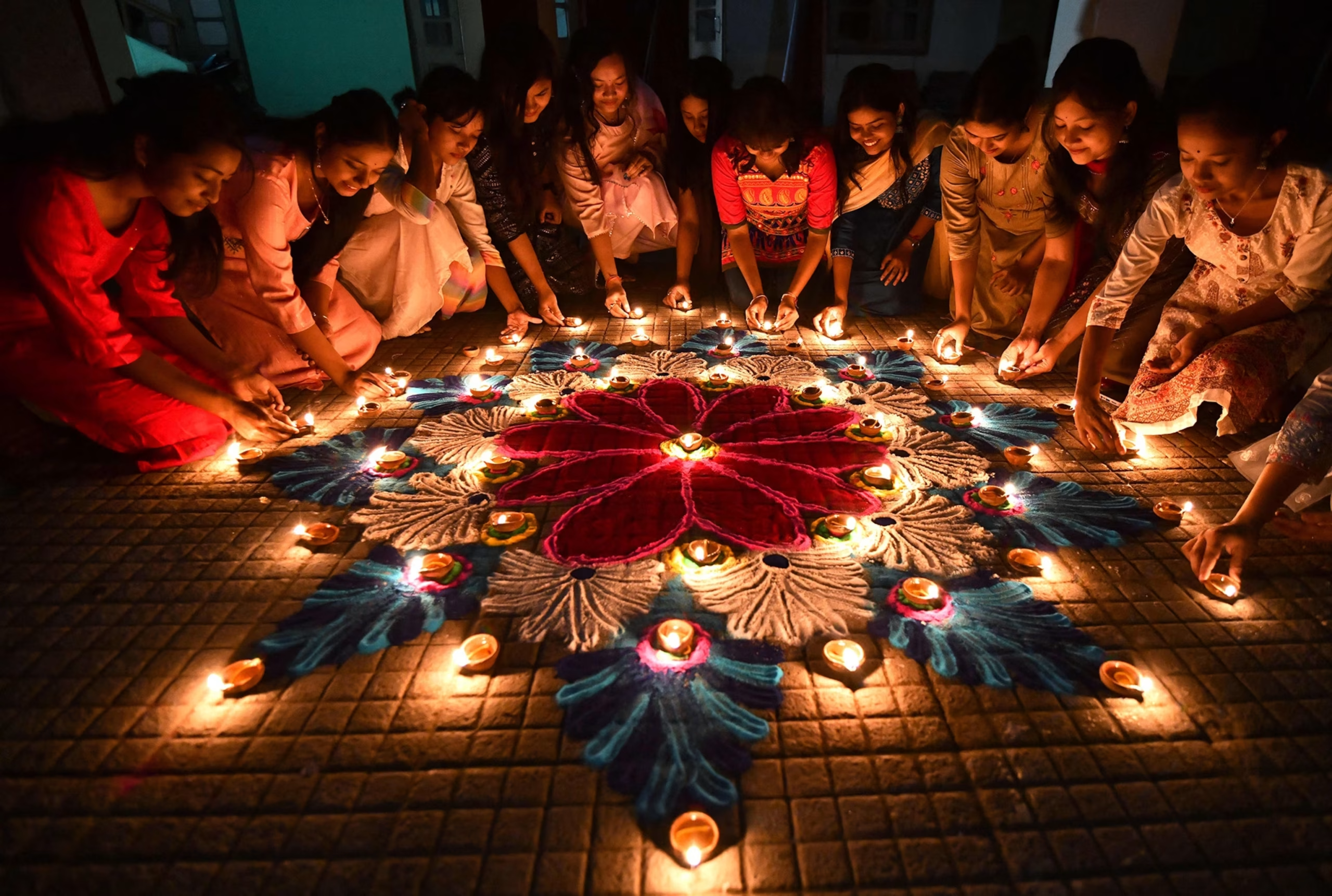moulddni0.com – Diwali, also known as the Festival of Lights, is one of the most significant festivals in Hinduism, Sikhism, Jainism, and some Buddhist traditions. It’s a celebration of light over darkness, good over evil, and knowledge over ignorance. This joyous festival is marked by colorful lights, fireworks, delicious sweets, and family gatherings.
The Significance of Diwali
Diwali commemorates the return of Lord Rama to Ayodhya after defeating the demon king Ravana. It symbolizes the victory of good over evil and the triumph of light over darkness. For Hindus, Diwali is also associated with the worship of Lakshmi, the goddess of wealth and prosperity. Sikhs celebrate Diwali to commemorate the release of the sixth Sikh Guru, Guru Hargobind, from Gwalior Fort. Jains celebrate Diwali to mark the attainment of Moksha (spiritual liberation) by Mahavira.
The Rituals and Traditions of Diwali
Diwali celebrations typically last for five days, each with its own significance:
- Dhanteras: The first day of Diwali is dedicated to the worship of wealth and prosperity. People purchase gold, silver, and other valuables to bring good luck.
- Chhoti Diwali: The second day is marked by cleaning homes and decorating them with diyas (clay lamps) and rangoli (colorful floor patterns).
- Diwali: The main day of the festival is celebrated with the lighting of diyas, the bursting of fireworks, and the worship of Lakshmi and Ganesha. Families and friends gather to exchange gifts and share sweets.
- Govardhan Puja: On the fourth day, people worship Lord Krishna and offer prayers for the well-being of cows and other animals.
- Bhai Dooj: The final day of Diwali is dedicated to the bond between siblings. Sisters apply tilak to their brothers’ foreheads and pray for their long life and prosperity.
The Symbolism of Lights
Lights play a crucial role in Diwali celebrations. Diyas, candles, and electric lights illuminate homes, temples, and public spaces. The lighting of diyas symbolizes the dispelling of darkness and ignorance. It also represents the inner light that guides us towards spiritual enlightenment.
The Joy of Sharing
Diwali is a time for sharing love, joy, and kindness. People exchange gifts, sweets, and blessings with family and friends. The festival fosters a sense of community and strengthens bonds between people.
Conclusion
Diwali is a festival that brings people together, transcending cultural and religious boundaries. It’s a celebration of hope, optimism, and the triumph of good over evil. By embracing the spirit of Diwali, we can illuminate our lives and the world around us.
